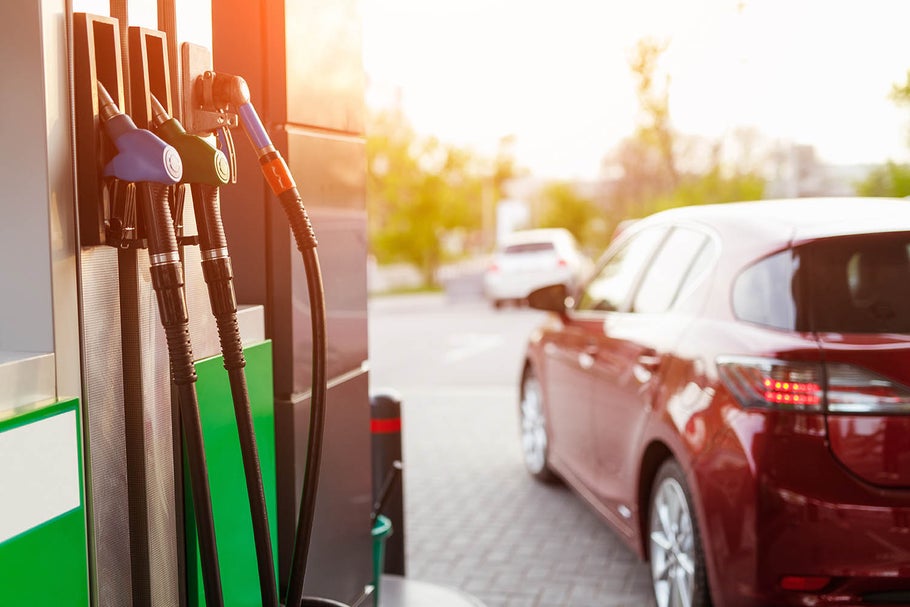Forecourts in focus: key takeaways from our networking lunch events
Our specialist retail team recently hosted two business networking lunches, bringing together forecourt operators, legal advisers, and industry stakeholders across the UK to discuss issues, challenges and opportunities in the sector. Here’s a summary of key takeaways from the conversation.
Business. Built around You.
Your expert business property advisers


From electrification pressures to retail diversification and crime prevention, the conversations revealed a sector that is resilient, innovative, and cautiously optimistic about the future of petrol retailing in the UK.
The events, held in collaboration with legal experts from Winckworth Sherwood, featured senior representatives from operators such as Ascona Group, Midland Motor Fuel, Rondel Trading, Sterling Petroleum Ltd, Park Garage Group, Highway Stops, Platinum Retail, Tankerford, Lawrences Garages, and Sectorsure, together representing hundreds of forecourt sites across the UK.
The events were also attended by Forecourt Trader – to read their article, click here.
Electrification: the costs, the returns, and the importance of strategic hubs
EV charging dominated both events, with operators discussing high installation costs and limited revenue generation. One Midlands-based retailer revealed a £700,000 quote for a substation installation, while another reported just £60 in income one month from a charge point on site.
Despite the financial strain, EV provision is now a requirement in new site development applications, driven by planning policies and bank lending criteria tied to net-zero credentials.
Our Managing Director of Retail, Steve Rodell, acknowledged these challenges, but highlighted that strategically located EV hubs, especially in high-traffic areas or urban zones with limited home charging, can be profitable.
Despite a slow yet consistent uptake in the use of EVs, it was widely agreed that traditional fuel retailing is likely to remain viable well into the 2030s and beyond, especially for businesses that embrace diversification and site expansion.
Retail diversification: social media, seasonal staples and shop expansion
Operators shared insights into changing consumer habits and the growing importance of retail innovation. From TikTok-driven products like Dubai chocolate to experimenting with perfume and make-up sales, the forecourt shop is becoming a dynamic retail space.
Seasonal staples like bottled water remain reliable, while obsolete tech accessories like micro-USB leads serve as cautionary tales.
Legal updates were also discussed, with Winckworth Sherwood flagging the forthcoming Tobacco and Vapes Bill, which will introduce a new licensing regime for the sale of tobacco and nicotine products, impacting petrol filling stations operators.
Food-to-go: in-house innovation vs big brands
Food remains a key differentiator in forecourt operations. While some operators favour franchised fast-food brands, others are finding success with bespoke in-house cafés. One independent retailer shared that his café serves 120 coffees a day at strong margins, offering lower prices than national chains while maintaining profitability.
Others are exploring branded bakery concepts and food-to-go machines, though caution was advised against overcrowding sites with too many food offerings, which can dilute returns.
Valeting and ancillary services: revenue streams and advertising potential
Valeting services continue to be a popular and profitable addition, with Wash-Tec systems earning praise. Operators noted that dwell times in valeting bays are attracting advertisers, creating new income opportunities through digital screen ads.
Some are even trialling valeting-only sites, while others are consolidating and upgrading existing forecourts rather than expanding portfolios, investing in modern pump infrastructure and shop enhancements.
Crime prevention and community engagement
Crime remains a costly issue for forecourt operators. From spurious liability claims - some AI-generated - to theft and vandalism, the sector is under pressure. Operators shared proactive strategies, including:
- Hosting knife amnesty boxes
- Offering free coffee and parking for police officers
- Installing high-quality CCTV systems that have helped bring offenders to justice
Community engagement and collaboration with local law enforcement were seen as the most effective crime prevention tools.
Staffing, culture & the next generation
The next generation of forecourt operators, many following in family footsteps, expressed optimism about the sector’s future. They acknowledged the challenges of staffing, especially around irregular hours and wage pressures, but noted that paying above minimum wage often results in better performance and loyalty.
Discussions also touched on the dynamics of family businesses, the potential for independent fuel card schemes to protect margins, and the importance of calculated risk-taking in innovation.
Looking ahead: the changing forecourt market
Despite rising costs and regulatory shifts, the mood across both events was one of cautious confidence. Steve Rodell noted that blue-chip investors are showing interest in petrol retailing due to its strong cash generation, suggesting long-term viability even as the market transforms.
As the sector navigates electrification, retail reinvention, and evolving consumer expectations, adaptability, local insight, and bold investment will define success in the next decade and beyond.
For tailored advice on forecourt acquisitions or disposals, contact Steve Rodell at Steve.Rodell@christie.com or +44 7738 182 407.